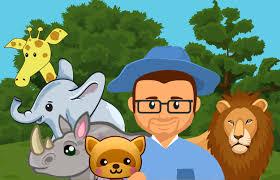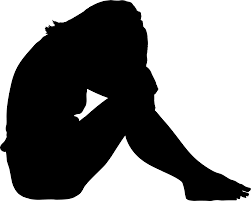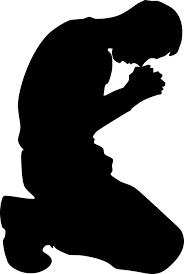by Walt Whitman

About the Poet
Walt Whitman (1819-1892) is a major figure in early American poetry. He broke the tradition of rhymed and metrical poetry. He was famous for writing a revolutionary new kind of poetry which was in free verse. The poem ‘animals’ is from his work ‘Song of Myself’ in Leaves of grass.
Central Idea of the Poem
In the poem ‘Animals’, the poet Walt Whitman praises animals for being better
than human beings and for possessing all such qualities that humans lack or
have forgotten. Those qualities are calmness, the lack of greed and the ability
to stay happy and contained among others. The poet wants to live among animals
and experience a life where no one complains and where they are free of sins
and sorrow.
The most important theme of the poem is not to praise how good animals are, but
to compare humans with them in order to highlight the flaws of their nature.
The poet believes that probably a very long time ago, humans possessed all
these qualities mentioned above, but they have now lost them.
Animals Poem Summary
In the poem animals, the poet has described his will to become an animal because he thinks animals are far better than human beings. Human beings are greedy and full of jealousy against each other. But animals are calm and self contained. The animals are happy with what they have. They never complain about miseries and sorrows. On the other hand human beings complain about their miseries. They give more importance to the rich and strong people, stay restless because of their wrongdoings and run behind the luxurious things of this world. Whereas animals are honest about their relations and don’t give importance to a particular class. They live a life that is full of honesty and less greed and jealousy.
STANZA-WISE EXPLANATION
Stanza 1
I think I could turn and live with animals, they are
so placid and self-contain’d,
I stand and look at them long and long.
WORD
MEANINGS
Placid: calm, peaceful
Contained; keep up control
EXP-The poet says that he wants to live in the world of animals. Here we can say that the poet finds the world of animals better than that of human beings. He further says that he finds animals more peaceful than humans. He says so because animals are not running after worldly things like human beings. They are calm and have no greed for worldly things or any kind of achievements. They are self-contained means they are happy with life and never interfere in the lives of others. Humans have the habit of interfering in the lives of others. So, the poet thinks that animals are better than humans for being calm and not interfering in the matters of others. The poet further says that these are the reasons why he stands still and looks at the animals for a very long time.
Literary Devices:
Assonance: use of vowel sound ‘I’ (I, think, I, live, with, animals)
Repetition: use of the word ‘long’
Anaphora: ‘I’ word used at the start of two consecutive lines
Stanza 2
They do not sweat and whine about their condition,
They do not lie awake in the dark and weep for their sins,
They do not make me sick discussing their duty to God,
Not one is dissatisfied, not one is demented with
the mania of owning things,
Sweat: here it means complaint
WORD MEANINGS
Whine: cry
Sins: wrongdoing
Demented: mad, disturbed
EXP-The poet says that unlike humans, animals don’t complain of any misery. They never cry out loud like humans do, to show what they have lost. They never stay awake in the night, crying in repentance for their wrongdoings. This means that animals are different from human beings because they don’t show anger or grief if something wrong happens with them. He further says that animals are very truthful because they never boast of their good deeds done in the name of god. He says so because most of the human beings do this. They try to show their good deeds and religiousness to others. They do so in order to gain popularity among their fellows. So, the poet thinks that animals never irritate him by doing such things just to gain some praise from their fellow people. He feels that animals are not dissatisfied like humans. They stay happy with whatever they have. They never run behind worldly things. They never try to possess things of comfort or luxury. He says that none of them is mad behind owning the worldly things.
Literary Devices:
Anaphora: use of repeated words at the beginning of two or more consecutive lines (use of “they do not”)
Metaphor: sweat and whine refer to the cries and complaints of human beings
Stanza 3
Not one kneels to another, nor to his kind that
lived thousands of years ago,
Not one is respectable or unhappy over the whole earth.
So they show their relations to me and I accept them,
They bring me tokens of myself, they evince
them plainly in their possession
WORD MEANINGS
Kneels: bow down
Evince: show, reveal
Possession: ownership of something
Tokens: here, the qualities
EXP-Here the poet says that he has never seen any animal showing his devotion to anyone by bowing down in front of the person. They never do so even for their ancestors. They do not show devotion towards God like humans do. No one among them is more respectable or important as we have in human society. In human beings, rich people are generally given more importance and are treated with more respect as compared to the poor. But in the society of animals, they never do so. They never give more or less importance to any other animal. Everyone in the animal world is happy. They are not like human beings who find themselves the happiest or the saddest person on earth. Further the poet says that animals are more honest in showing their relations with other animals. Here he wants to say that animals use other animals as their food and they never try to hide this. Whereas human beings show that they have nice and friendly relations with others, though the reality is opposite. The poet says that he accepts the fact that animals are true towards showing their relation with other animals.
Literary Devices:
Metaphor: The inner qualities of humans are referred to as tokens
Stanza 4
I wonder where they get those tokens,
Did I pass that way huge times ago and negligently drop them?
WORD MEANINGS
Negligently: Carelessly
EXP-So at last the poet introspects himself and says that from where the animals got those good qualities. He further questions himself that where his own good qualities are gone? Did he left them or had carelessly lost them somewhere. The qualities that were found in human beings in the past, like innocence, kindness, truthfulness are now seen in animals. He wonders that humans gave up these qualities and they have been passed on to the animals.
Animals Poem Rhyme Scheme
There is no rhyme scheme followed in the poem.
Text Book- Question and Answers
Q1- Notice the use of the word ‘turn’ in the first line, “I think I could turn and live with animals…” What is the poet turning from?
Ans- The poet is turning away from living in the world of human beings. He finds animals more placid and self-contained and therefore, he wants to live with them.
Q2- Mention three things that humans do and animals don’t?
Ans- The three things that humans do and animals don’t are as follows:
Humans complain and cry about the miseries and sorrows they face.
Humans lie awake in the night thinking about their wrongdoings.
Humans also keep telling others about their religiousness and duties towards God.
Q3- Do humans kneel to other humans who lived thousands of years ago? Discuss this in groups?
Ans- Yes humans kneel to other humans who lived thousands of years ago. They could be some ancestors, saints or the preachers whom they follow religiously. They worship them and follow their preaching.
Q4- What are the ‘tokens’ that the poet says he may have dropped long ago, and which the animals have kept for him? Discuss this in class. (Hint: Whitman belongs to the Romantic tradition that includes Rousseau and Wordsworth, which holds that civilisation has made humans false to their own true nature. What could be the basic aspects of our nature as living beings that humans choose to ignore or deny?)
Ans- The word tokens according to the poet is the good qualities in human beings. The poet feels that nowdays good qualities do not exist in human beings. They have lost them for the sake of worldly things which they want to achieve at any cost.
EXTRA Question and Answers
Extract
Based Questions (4 marks each)
Read the lines given below and answer
the questions that follow :
Question 1. I think I could turn and live with
animals, they are So placid and self-contain’d I stand and look at them long
and long.
(a) Name the poem and the poet.
(b) What does the poet say about animals ?
(c) Trace a word from the extract that means ‘Serene’.
(d) The poet looks at the animals.
Answer: (a) The poem ‘Animals’ has been written
by Walt Whitman.
(b) The poet says that the animals are placid, self-contained, calm and
peaceful.
(c) placid.
(d) long and long
Question 2. They do not sweat and whine about their
condition,
They do not lie awake in the dark and weep for their sins,
They do not make me sick discussing their duty to God.
(a) Name the poem and the poet.
(b) Who does the pronoun ‘they’ stand for.
(c) Who weep for their sins ?
(d) Who do not discuss their duty to God ?
OR
(a) Who are ‘they’ referred to here ?
(b) What do they not do at their condition ?
(c) How do they feel for their sins ?
(d) Their duty is towards …………
Answer: (a) ‘Animals’ by Walt Whitman.
(b) Animals.
(c) Human beings.
(d) Animals.
OR
(a) ‘They’ refers to ‘animals’.
(b) They do not sweat and whine at their condition.
(c) They do not lie awake in the dark and weep for their sins.
(d) God.
Question 3. They bring me tokens of myself, they
evince them plainly in their possession I wondered where they get those tokens,
Did I pass that way huge times ago and negligently drop them ?
(a) What does the poet thinks about the animals brought him tokens of ?
(b) Who composed these lines ?
(c) What does the animals evidently show about the tokens ?
(d) Which word in the passage refers to ‘careless’
Answer: (a) The recognition of his true self.
(b) Walt Whitman.
(c) The animals evidently show about the tokens of virtues like their kindness,
innocent and self-containment.
(d) Negligently
Short
Answer Type Questions
Question 1. In the first line of the poem, ‘I think
I could turn and live with the animals’, What is the poet turning from ?
Answer: The poet Walt Whitman says that he can
identify himself better with the animals, for their qualities of serenity and
calm composure. So he intends turning towards them, away from his human
companions.
Question 2. Do humans kneel to other humans who
lived thousands of years ago ?
Answer: Yes, many communities of humans follow
the practice of worshiping saints and sages, who lived thousand of years ago,
who led an exemplary life of high moral values and therefore reflect the image
of ‘God Almighty’ and are worshipped by generations of humans.
Question 3. Mention three things that humans do and
animals don’t.
Answer: Though humans differ from animals in
innumerable ways, but this poem highlights some negative traits of humans that
animals are free from. Humans are for ever fretting and complaining about their
circumstances and condition, they get distraught with anxiety to gain material
possessions and are ridden with guilt of sinful actions which deprive them of a
sound sleep.
Question 4. What are the ‘tokens’ that the poet says
he may have dropped long ago and which the animals have kept for him ?
Answer: Humans and animals have similar basic
instincts. While civilization has changed the man, but these basic instincts
are preserved in the animals and help the humans to reconnect to their true
self; so man seeks comfort in the company of animals.
Question 5. Why does the poet like animals?
Answer: The poet likes animals for their
self-contained and quiet nature. The fact that animals are not like human
beings and satisfied with their lives which appeals to the poet a lot.
Question 6. Explain the satisfaction that animals
have and humans don’t. [CBSE
2014]
Answer: Animals do not have the desire to
possess worldly things. Whereas, the more humans own, the more their desire to
own grows, leaving them dissatisfied forever. The absence of this greed in
animals keeps them satisfied and its presence keeps humans dissatisfied.
Question 7. Why do animals not weep for their sins?
Answer: Animals do not weep for their sins
because they do not need to do so. They are innocent creatures that commit no
sins. It is humans, who weep yet commit sins.
Question 8. What makes the poet sick?
Answer: The fact, that humans commit all kinds
of sins and still discuss their duty to God, makes the poet sick. This shows
the hypocrisy of humans, who on one hand do wrong and on the other pray to God.
Question 9. Differentiate between humans and animals
in terms of desire.
Answer: Animals are very different from humans
as they have no desire to own things. They are happy without an unending greed
while humans become maniacs in their greed for possessing valuables.
Question 10. What does the poet mean by, “Not one is
respectable or unhappy over the whole earth”?
Answer: The poet means that animals do not pray
to God or to ancestors and all of them are equal, hence no one is more
respectable than the other. The good values of animals and the lack of social
conventions make them happy.
Long
Answer Type Question
Question 1. Mention three things that humans do and
animals do not ?
Answer: The poet wait whitman in his poem
‘Animals’ compares animals to human beings and differentiates between . them on
the basis of their characteristics. According to the poet’s perception animals
are ranked much higher than humans. Animals do not complain about their
situation and are much happier then humans. Animals live in natural
surroundings, they accept nature. Human beings on the other hand do not accept
nature i.e., they complain about it and try to change it leading an unhappy
life.
Question 2. Why do you think the poet has called the
desire to own things, a mania? Is the poet right in doing so? Write your own
views.
Answer: The poet uses words such as ‘demented’
and ‘mania’ for never ending desire of human beings to own things. These words
show that poet is comparing this desire to madness. The poet stands right in
doing so as this desire makes us so greedy and traps us in a vicious circle of
aspiring more and more. Animals that are free from any possession are also free
from sins, worries and complaints. In order to gain more wealth, all the
important values such as morality and kindness are left behind.
Question 3. What according to you should be the
virtues that humans should possess?
Answer: Human beings should be gentle not only
to their own kind but also to everyone and everything. Virtues such as kindness
bring along other important values like innocence and honesty that together
make the world a better place to live. The lack of such values results in a
corrupt society where people commit sins and weep over them in dark. This
situation makes them dissatisfied and unhappy in life. Human beings probably
had these virtues in them but along with civilisation processes, they have left
them behind and adopted greed and cunningness.
Question 4. It is not complaining but accepting a
situation, the key to happiness in life. Elaborate in context of the poem
Animals’.
Answer: The poet Walt Whitman in his poem
‘Animals’ compares animals to human beings and differentiates between them on
the basis of their characteristics. Animals have been ranked much higher than
humans in poet’s perception. Since animals do not complain about their
situation, they are considered to be much happier than humans. Animals live in
natural surroundings, they accept their natural lives. Humans, on the other
hand, have never accepted nature, i.e., they complain about it and try to
change it, leading to an unhappy life.
Question 5. The poet in the poem Animals’ laments
the loss of certain values on the part of human beings, whereas animals seem to
have retained them and are self contented. Analyse the cause of degeneration of
values in today’s hard times.
Answer: In the modern civilised world, human
beings have achieved a lot of material values but lost the real virtues. The
more developed and modern human beings became, the more they lost the essence
of their characters. Animals, whereas, never adapted to any material goods and
always remained natural. This natural aspect of animals has helped them maintain
their values. Humans, in order to possess more and more have forgotten kindness
and innocence.




